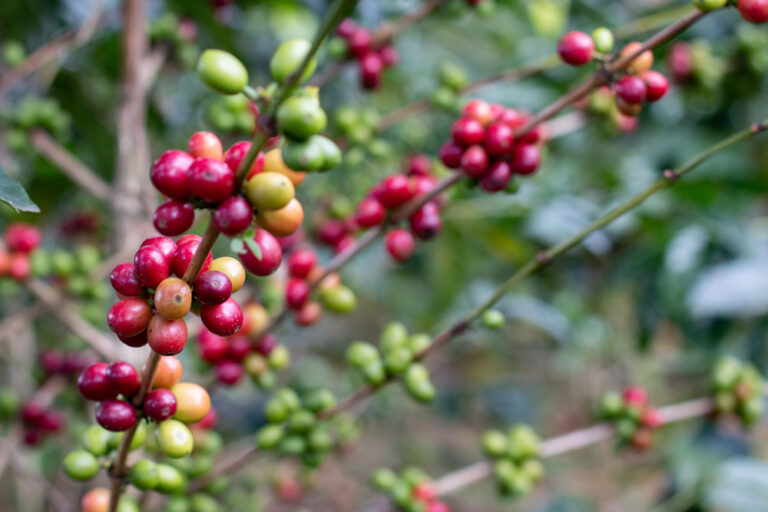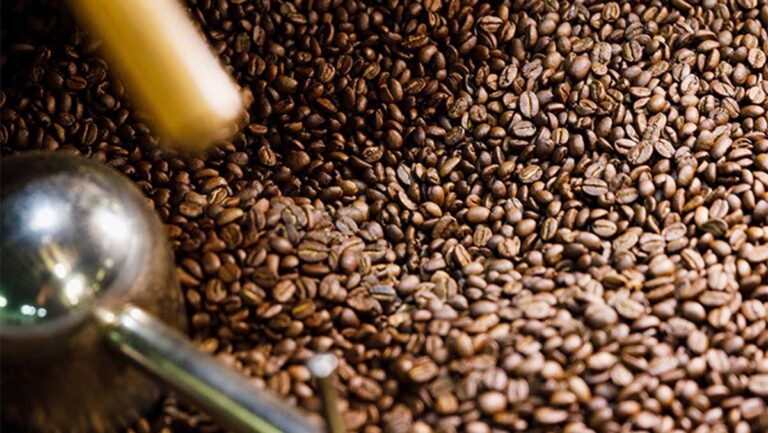Honduras Specialty Coffee
Nestled amongst picturesque mountains and verdant forests, Honduras is a tropical paradise celebrated for its remarkable biodiversity and pristine beauty. In addition to the country’s natural beauty, Honduras boasts a thriving coffee industry, producing highly sought-after coffee beans that have gained popularity worldwide. As coffee enthusiasts ourselves, we are among the many who appreciate the rich cultural and natural treasures that make Honduras a standout player in the global coffee market!
Honduras, though small in size, is a coffee-producing powerhouse that deserves recognition for a multitude of reasons. In this blog, we shine a light on the hard work, determination and success the region has achieved and why we should be talking more about this humble coffee origin. So get your cuppa ready as we take you on a delicious journey through Honduras’ coffee history!
History Of Coffee Growing in Honduras
Honduras has a rich history of coffee cultivation that dates back to the late 18th century when Spanish settlers introduced coffee to the region. Initially, coffee production was small-scale, and the majority of coffee beans were brewed by the locals. However, during the mid 19th century more focus was given to the agricultural industry, which saw coffee production in Honduras grow (figuratively… and literally!). By the 20th century, Honduras had become one of the country’s most important agricultural exports.
Despite significant progress in coffee-growing knowledge and skills during the 19th century, Honduras lagged behind neighbouring countries such as Guatemala and Nicaragua in terms of coffee production. Consequently, most of the coffee produced in Honduras was exported for blending with other region’s commercial grade coffee beans, rather than as a bag of specialty beans on their own.
The country has experienced difficult challenges in coffee production, including the spread of the coffee rust disease in the late 19th century as well as the turmoil of Hurricane Mitch (1998), which was the second-deadliest Atlantic hurricane on record and wiped out 80% of Honduras’ crops. This devastation had a long lasting impact, with many Hondurans sneaking coffee to neighbouring countries where they could sell their beans at a higher price. Smuggling coffee continued for years until the government started allocating this tax revenue back to assisting producers, which saw the quality and value of Honduran coffee increase.
Despite these setbacks, the country persevered, investing more and more into the agricultural industry. In 1970 the Honduran government created IHCAFE (Instituto Hondureño del Café) to assist in helping farmers confront challenges in the productivity and quality of coffee production. This has seen great results for the coffee industry with Honduras surpassing Guatemala in 2011 in becoming the largest coffee producer in Central America and not to mention in 2017, a Honduras lot in the Cup of Excellence garnered the highest price ever paid for a Cup of Excellence coffee in any country (approximately $56.50 AUD per kg)!

Specialty Coffee Growing In Honduras
Coffee is a crucial export for Honduras and plays an important role in the country’s economy, providing employment for a significant portion of the population and generating valuable export revenue. In fact, coffee is the country’s leading agricultural export, accounting for around 30% of total exports and generating an estimated $1 billion in annual revenue. Alongside coffee, other exports include bananas (10% of total exports), sugarcane (3%) and textiles (7%), which all work together to offer an optimistic future for Honduras’ economy!
The IHCAFE established 6 key coffee producing regions in order to offer a wide range of support to farmers as well as sufficiently control Coffee Leaf Rust (CLR). These 6 coffee regions are Agalta, Comayagua, Copán, Montecillos, Opalaca, and El Paraíso with the most famous area being Copán for producing sweet and chocolate-y cups.
Most of the coffee farms in Honduras are small family-owned operations, with an average farm size of 5 hectares. The coffee beans are typically grown on the slopes of the mountains (between 1100 and 1650 metres above sea level), where the soil is rich and areas are blessed with optimum micro climates. The coffee plants are spoiled with ample rainfall, adequate sunshine, and well-draining soil to grow and produce high-quality beans.
Processing Methods Of Honduras Specialty Coffee
Honduras produces a wide range of coffee varieties, including; bourbon, caturra, catuai and new hybrids belonging to the catimor genetic group! Catimor varieties are known for their disease resistance and productivity and are a popular choice for coffee growers in regions with challenging growing conditions. Some of the popular Catimor varieties grown in Honduras include Sarchimor, IHCAFE 90, and Lempira.
Once the coffee beans are harvested, they undergo a series of processing steps to prepare them for export. The processing method used for coffee beans in Honduras varies, but the most common methods include the wet (washed) and dry (natural) methods.
High levels of rainfall in Honduras have made it difficult to complete the drying processing method, resulting in some producers adopting mechanical drying devices, using solar dryers or even experimenting with polytunnels (known as “domos”) to control the drying process.
The wet method, also known as washed processing, is more popular than the natural processing in Honduras as it’s much more efficient however, it does result in water wastage.

Sustainable Coffee Farming In Honduras
Honduras has made a commitment to adopt sustainable practices to protect their country’s water sources, natural resources and prevent erosion while expanding their coffee regions.
To achieve this goal, Honduras joined the Global Coffee Platform (GCP) in 2018. As a member, they have provided farmers, customers, and suppliers with effective communication and training tools aimed at promoting sustainable agroforestry practices. This includes how to conserve soil quality, improve biodiversity, and reduce the need for synthetic fertilisers and pesticides.
Enjoy Specialty Coffee From Honduras
Honduras has a long history of coffee cultivation that has helped shape its economy and global reputation as a coffee-producing powerhouse. Despite facing numerous challenges, including natural disasters and plant diseases, the country has persevered, resulting in remarkable (and scrumptious) success.
One cup of Honduras differs greatly from another. Traditional flavours are usually nutty, chocolatey and savoury or, on the other hand they can also be fruity and acidic. As Honduran farmers experiment with new varieties, we can expect more wonderful flavours coming from this region. Stay tuned… you might just see them freshly roasted and sitting on our shelves.



